Black Panther (2018) – Full Movie Analysis, Plot, Themes & Cultural Impact
Introduction:
Marvel Studios’ Black Panther (2018), directed by Ryan Coogler, was more than just another superhero movie—it was a cultural milestone that redefined what comic book cinema could mean to audiences worldwide. When the film premiered in February 2018, it was met not only with anticipation from Marvel fans but also with an extraordinary sense of pride and enthusiasm from communities that had long yearned for representation in mainstream Hollywood.
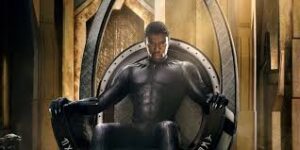
The character of Black Panther first appeared in Marvel Comics in 1966, created by Stan Lee and Jack Kirby. T’Challa, the king of the fictional African nation of Wakanda, became the first Black superhero in American comic book history. His introduction during the civil rights era was groundbreaking, but it took decades before he appeared in a major live-action film.
After a brief but memorable debut in Captain America: Civil War (2016), Chadwick Boseman’s T’Challa won audiences over with his regal presence, gravitas, and moral complexity. The success of Civil War laid the foundation for Black Panther’s solo film, which would explore not only the character himself but also his world, culture, and philosophical dilemmas.
The timing of the film’s release was also significant. In an era when issues of racial inequality, representation, and cultural pride were increasingly prominent, Black Panther resonated deeply. The film was not just about a superhero saving the world; it was about reclaiming narratives, challenging stereotypes, and celebrating African heritage on a global stage.
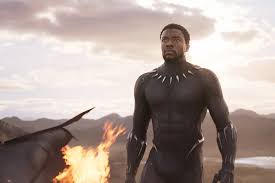
Production, Cast & World-Building
Director Ryan Coogler, known for Fruitvale Station (2013) and Creed (2015), was tasked with shaping Wakanda into a fully realized cinematic world. Coogler’s vision combined superhero spectacle with themes of heritage, identity, and social justice. He worked closely with production designers, cultural consultants, and historians to ensure that Wakanda felt authentic yet futuristic—a concept rooted in Afrofuturism, which blends African traditions with science fiction.
The casting was another strength of the film. Chadwick Boseman led the ensemble as T’Challa, delivering a performance that balanced strength, vulnerability, and wisdom. Michael B. Jordan portrayed Erik Killmonger, one of Marvel’s most compelling villains. Unlike many one-dimensional antagonists, Killmonger’s motivations were deeply personal and politically charged, making him both relatable and threatening.
The supporting cast was equally powerful:
Lupita Nyong’o as Nakia, a spy and T’Challa’s former lover, whose worldview emphasized humanitarian outreach.
Danai Gurira as Okoye, the fierce general of the Dora Milaje, a group of elite female warriors.
Letitia Wright as Shuri, T’Challa’s younger sister and Wakanda’s brilliant tech innovator.
Angela Bassett as Queen Ramonda, T’Challa’s wise and dignified mother.
Forest Whitaker as Zuri, a shamanic figure and advisor to the king.
Winston Duke as M’Baku, leader of the Jabari tribe, who brought humor and depth to his role.
The film also featured Andy Serkis reprising his role as Ulysses Klaue, a black-market arms dealer introduced in Avengers: Age of Ultron.
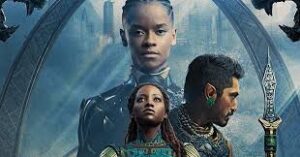
The costume design, led by Ruth E. Carter (who later won an Academy Award), drew heavily from African cultures. She incorporated elements from Maasai, Zulu, and other traditions, blending them with futuristic aesthetics. The music also played a critical role. Composer Ludwig Göransson created a score that fused traditional African instruments with modern orchestration. Additionally, a companion album curated by Kendrick Lamar, featuring songs like “All the Stars,” added a contemporary hip-hop influence that connected the film to global audiences.
The creation of Wakanda was perhaps the film’s greatest achievement. Depicted as a technologically advanced African nation untouched by colonialism, Wakanda symbolized both what Africa could have been and what it still could be—a place of pride, innovation, and cultural richness.
Plot Summary & Key Moments
The film begins with a prologue explaining Wakanda’s origins: centuries ago, a meteor containing vibranium—the strongest metal in the Marvel universe—crashed into Africa. Five tribes united to harness this resource, creating Wakanda. One tribe, the Jabari, chose isolation. Over time, Wakanda became the most technologically advanced nation on Earth, hidden from the outside world to avoid exploitation.
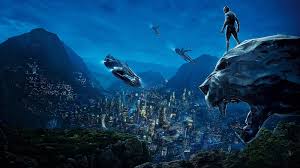
Following the events of Captain America: Civil War, T’Challa returns home to Wakanda to ascend the throne after the death of his father, King T’Chaka. His coronation ceremony, steeped in ritual and tradition, highlights the cultural depth of Wakanda. During the ritual combat challenge, M’Baku of the Jabari tribe challenges T’Challa but is defeated, though spared by T’Challa, showing his mercy and respect for life.
Meanwhile, Erik Stevens (later revealed as N’Jadaka, or Killmonger) emerges as a formidable antagonist. Raised in Oakland after his father, Prince N’Jobu (T’Chaka’s brother), was killed, Killmonger grew up angry at Wakanda for abandoning the African diaspora. He believes Wakanda has the power and duty to liberate oppressed Black people worldwide by arming them with advanced technology.
Killmonger joins forces with Klaue to steal vibranium artifacts, but he ultimately betrays and kills Klaue, using his body as a ticket into Wakanda. Once there, he challenges T’Challa for the throne in ritual combat. In a shocking turn, Killmonger defeats T’Challa and takes power, throwing Wakanda into turmoil.
Killmonger’s reign is short but impactful. He orders Wakanda’s resources to be used to arm oppressed people globally, beginning what he believes will be a worldwide revolution. His approach, however, is fueled by vengeance rather than justice.
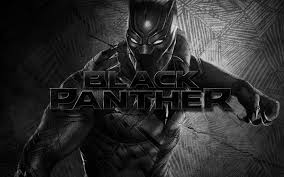
Meanwhile, T’Challa, thought dead, is rescued by the Jabari tribe and healed using the Heart-Shaped Herb. With the help of Nakia, Shuri, Okoye, and M’Baku, T’Challa returns to reclaim the throne.
The climactic battle pits T’Challa’s forces against Killmonger’s supporters, including the Dora Milaje and war rhinos. The conflict is both physical and ideological: tradition vs. radical change, vengeance vs. justice, isolation vs. responsibility. In their final confrontation, T’Challa fatally wounds Killmonger. Rather than imprison him, T’Challa offers mercy, but Killmonger chooses death over bondage, delivering the powerful line: “Bury me in the ocean with my ancestors who jumped from ships, because they knew death was better than bondage.”
In the aftermath, T’Challa decides to end Wakanda’s isolation. He establishes outreach centers in Oakland and promises to share Wakanda’s resources with the world, symbolizing a new vision of global responsibility.
Themes & Symbolism
The strength of Black Panther lies not only in its spectacle but in its thematic depth.
Identity and Heritage:
T’Challa grapples with what it means to be king—balancing tradition, responsibility, and progress. Killmonger, meanwhile, struggles with the pain of being cut off from his heritage. Their conflict represents the duality of African and African diaspora experiences.Isolationism vs. Global Responsibility:
Wakanda’s long-standing choice to hide from the world is challenged. Should a nation protect itself or use its resources to help others? This debate mirrors real-world questions about privilege, responsibility, and global justice.Family and Tradition:
The film emphasizes ancestry, ritual, and the wisdom of elders. T’Challa’s conversations with his ancestors in the spirit realm highlight the importance of legacy and the burden of leadership.Killmonger’s Philosophy:
Killmonger is not a typical villain—his pain is real, his grievances legitimate. His desire to liberate oppressed people resonates with many viewers, even if his methods are extreme. His character forces audiences to confront uncomfortable truths about history, colonialism, and inequality.Afrofuturism and Representation:
Wakanda embodies a vision of Africa unscarred by colonization. Its technological advancements, cultural richness, and independence present a powerful counter-narrative to stereotypes of poverty and conflict.
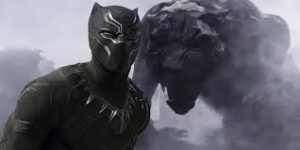
Women Empowerment:
The film’s women are not side characters but leaders. Shuri represents scientific brilliance, Okoye embodies loyalty and strength, and Nakia reflects compassion and diplomacy. Their presence challenges gender norms both within and outside the superhero genre.
Cultural Impact, Reception & Legacy
Black Panther was a massive critical and commercial success. It grossed over $1.3 billion worldwide, becoming one of the highest-grossing films of all time and the highest-grossing solo superhero film until Spider-Man: No Way Home (2021).
Critically, it was lauded for its performances, direction, design, and themes. It earned a historic seven Academy Award nominations and won three: Best Costume Design, Best Production Design, and Best Original Score. Ruth E. Carter and Hannah Beachler became the first Black women to win Oscars in their respective fields.
The cultural impact was profound. For many viewers, especially Black audiences, Black Panther represented a long-awaited moment of recognition and celebration. The film sparked movements such as “Black Panther Challenge,” where communities raised funds to send children to see the film. Fashion inspired by Wakanda appeared worldwide, and the phrase “Wakanda Forever” became a cultural rallying cry.
Politically, the film encouraged discussions about race, colonial history, and social justice. Killmonger’s critique of Wakanda’s isolation resonated with broader debates about privilege and responsibility.
In terms of legacy, Black Panther stands as one of the most important films in the MCU, not only for its box office but for its influence. Chadwick Boseman’s untimely death in 2020 only deepened the film’s significance. His portrayal of T’Challa became iconic, and his loss was mourned globally. The sequel, Black Panther: Wakanda Forever (2022), was shaped by this tragedy, serving as both continuation and tribute.
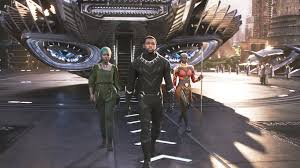
Conclusion:
Black Panther is more than a superhero movie—it is a landmark in film history. It redefined representation in Hollywood, proving that stories rooted in African culture could resonate worldwide. It challenged the genre to be more than escapism, weaving in questions of identity, justice, and heritage.
Through its rich world-building, complex characters, and cultural resonance, Black Panther showed that superheroes can inspire not just through action but through meaning. Wakanda may be fictional, but the pride, hope, and conversations it inspired are very real.
In the end, Black Panther stands as a celebration of culture, a challenge to stereotypes, and a reminder that stories have the power to change how we see ourselves and the world. Its impact—like the legacy of T’Challa himself—will endure for generations.
FAQs:
Q1: What is Black Panther about?
A: Black Panther tells the story of T’Challa, who becomes king of Wakanda, a secretive and technologically advanced African nation. He faces challenges to his throne, particularly from Erik Killmonger, who wants to use Wakanda’s power to liberate oppressed people worldwide.
Q2: Who directed Black Panther?
A: The film was directed by Ryan Coogler, known for Fruitvale Station and Creed.
Q3: Who plays the main characters in Black Panther?
A:
Chadwick Boseman as T’Challa / Black Panther
Michael B. Jordan as Erik Killmonger
Lupita Nyong’o as Nakia
Danai Gurira as Okoye
Letitia Wright as Shuri
Angela Bassett as Queen Ramonda
Winston Duke as M’Baku
Forest Whitaker as Zuri
Q4: What is Wakanda?
A: Wakanda is a fictional African nation in the Marvel universe. It is the most technologically advanced country on Earth, thanks to its vast supply of vibranium, a powerful metal from a meteorite.
Q5: Why is Killmonger considered one of Marvel’s best villains?
A: Killmonger’s motivations are rooted in real-world issues of oppression, inequality, and colonial history. Unlike typical villains, his grievances are valid, making him complex and sympathetic, even though his methods are violent.
Q6: What themes does Black Panther explore?
A: Major themes include identity, heritage, leadership, isolationism vs. global responsibility, colonialism, Afrofuturism, and women’s empowerment.
Q7: How successful was Black Panther at the box office?
A: The film grossed over $1.3 billion worldwide, making it one of the highest-grossing films of all time and the highest-grossing solo superhero movie until Spider-Man: No Way Home.
Q8: Did Black Panther win any awards?
A: Yes, it won three Academy Awards: Best Costume Design, Best Production Design, and Best Original Score. It was also nominated for Best Picture, becoming the first superhero film to achieve that honor.
Q9: Why was Black Panther culturally significant?
A: It was the first major superhero film to center on a Black hero and feature a predominantly Black cast, celebrating African culture through Afrofuturism, fashion, and music. It provided representation that resonated deeply across the globe.
Q10: What impact did Chadwick Boseman’s death have on the franchise?
A: Chadwick Boseman’s passing in 2020 was a huge loss. His portrayal of T’Challa became iconic, and Black Panther: Wakanda Forever (2022) served as both a continuation of the story and a tribute to his legacy.
